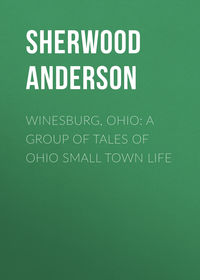Kitabı oku: «Winesburg, Ohio: A Group of Tales of Ohio Small Town Life», sayfa 7
Bir şeyler ters gitti, lütfen daha sonra tekrar deneyin
Türler ve etiketler
Yaş sınırı:
0+Litres'teki yayın tarihi:
30 mart 2019Hacim:
250 s. 1 illüstrasyonTelif hakkı:
Public Domain